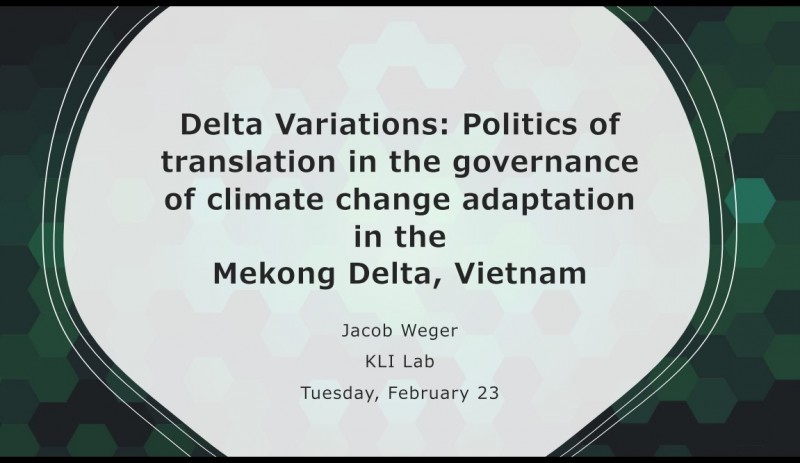The KLI support international groups of scholars in the life and sustainability sciences working on interdisciplinary projects to conduct their groundbreaking research at the institute. KLI Focus Groups and Working Groups aim to develop ideas on a particular subject and generate suggestions for action. The participants have different scientific backgrounds and strive to develop specific, practical goals. Focus Groups are one-time meetings gathering and working together at the KLI for a period of one to maximum two weeks. Working Groups comprise 3 meetings over the course of one year and a half.
Event Details

Abstract:
With adaptation to climate change becoming a dominant paradigm in international development, major river deltas have been at the forefront of efforts to steer development along a climate-resilient path. The Mekong Delta of Vietnam, for example, has become an international laboratory for climate adaptation governance, guided prominently by the Dutch-supported “Mekong Delta Plan” (2013) as well as funding from a recent World Bank “Integrated Climate Resilience and Sustainable Livelihoods” project. Within Vietnam, an entire multilevel governance apparatus is engaged in furthering the climate change adaptation agenda. A politics of translation is at the heart of these operations, as differently situated actors reproduce, negotiate, and mobilize adaptation knowledge in pursuit of varied objectives, seeking to move from conceptualization to implementation. This paper examines the role of intermediary actors that work as mediators in this process, translating knowledge upwards as well as down in the governance system. Drawing on multi-scalar ethnographic research with Vietnamese scientists, provincial-level bureaucrats, and agricultural extension agents, it considers the agency these actors have in shaping the trajectory of socio-ecological change in the Delta. By exploring strategies of translation and the intersections of different identities, interests, and agendas, the paper pinpoints contestations and switch-points that occur and seeks to identify potential openings for transformative pathways to emerge.


